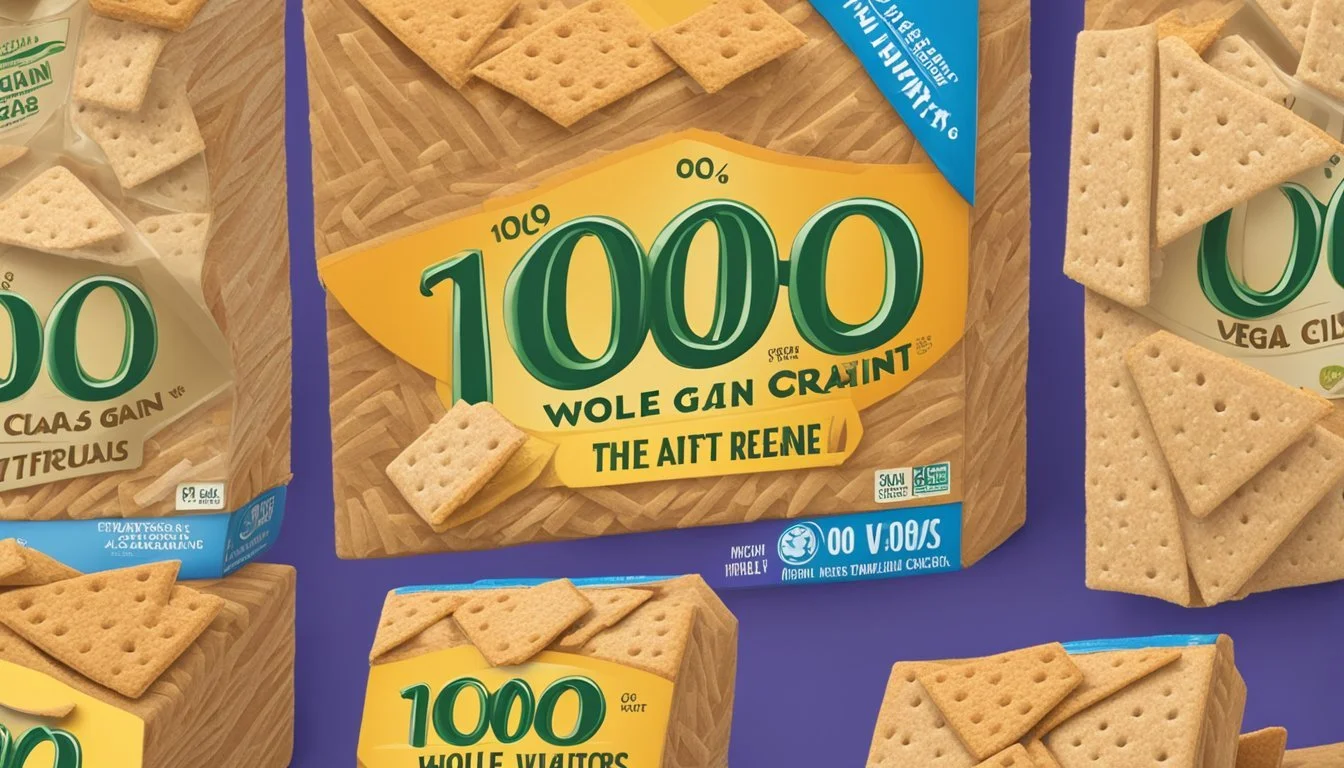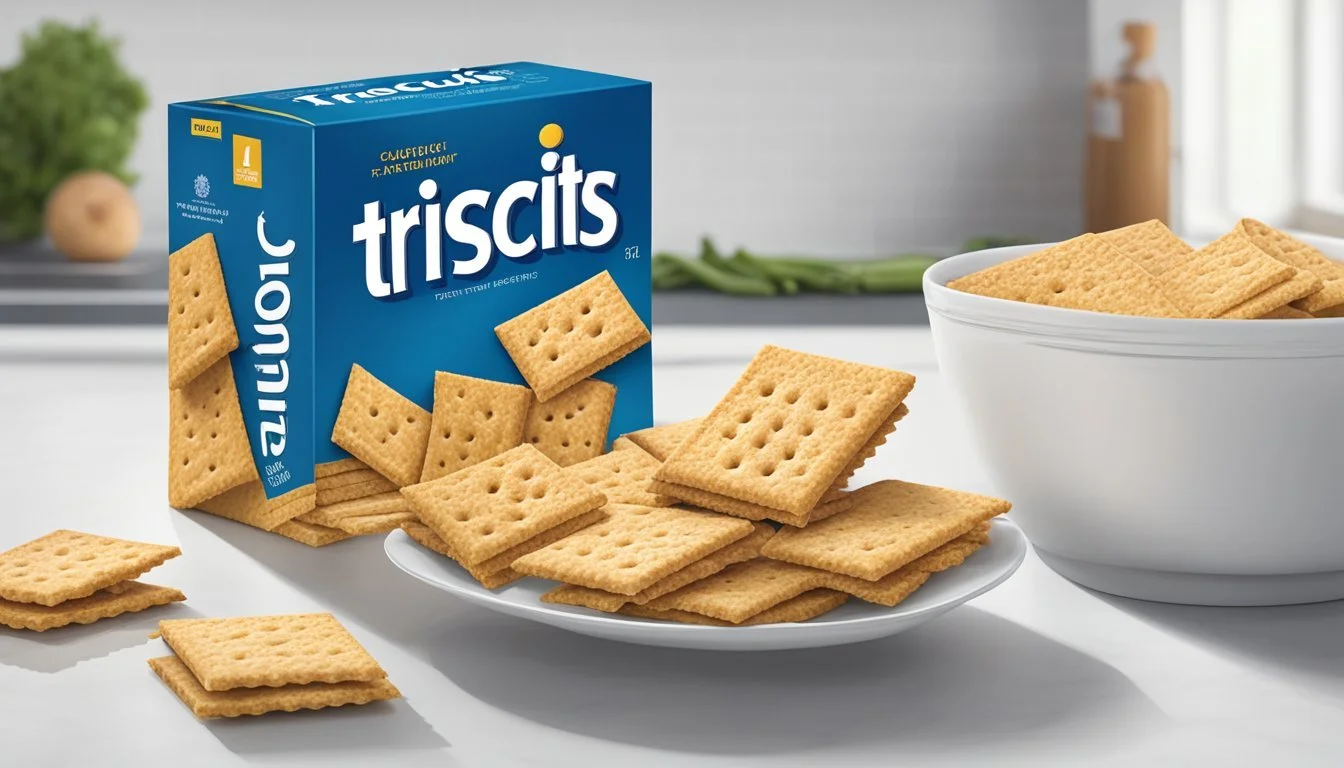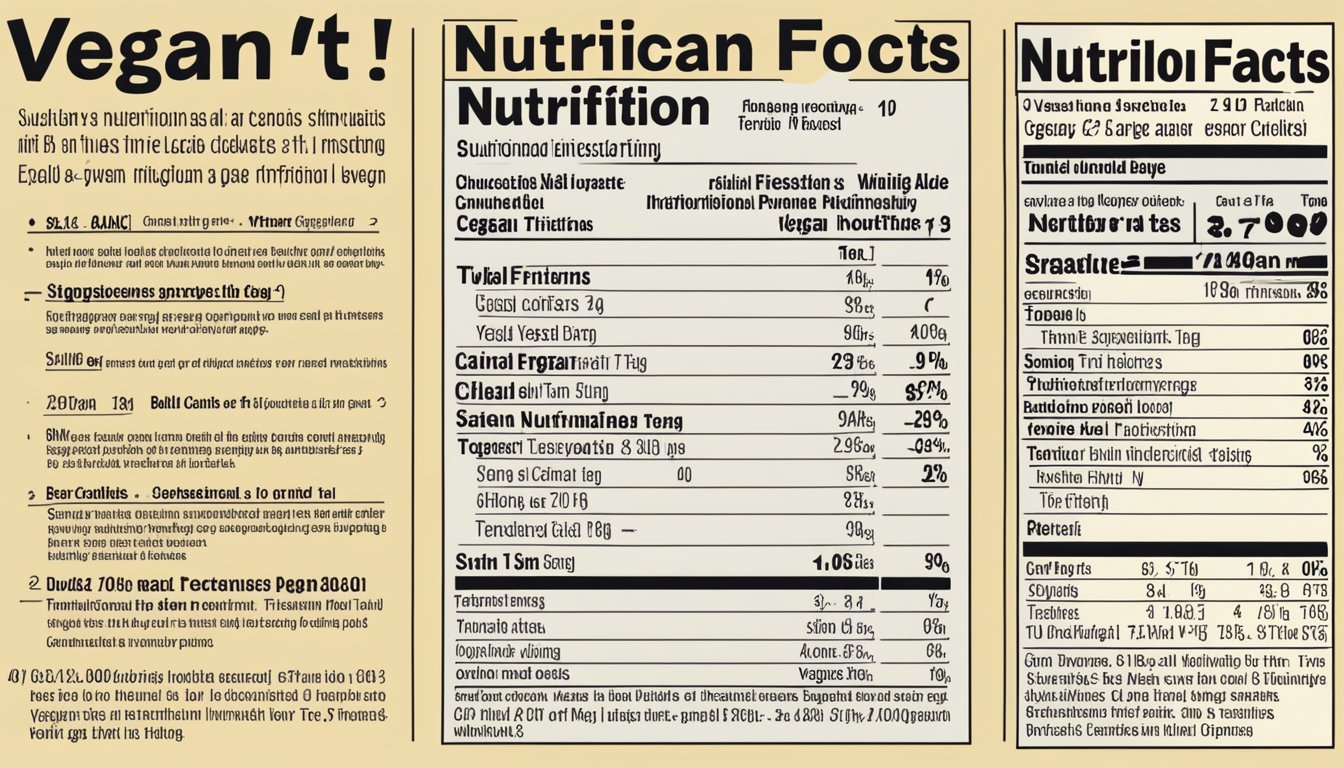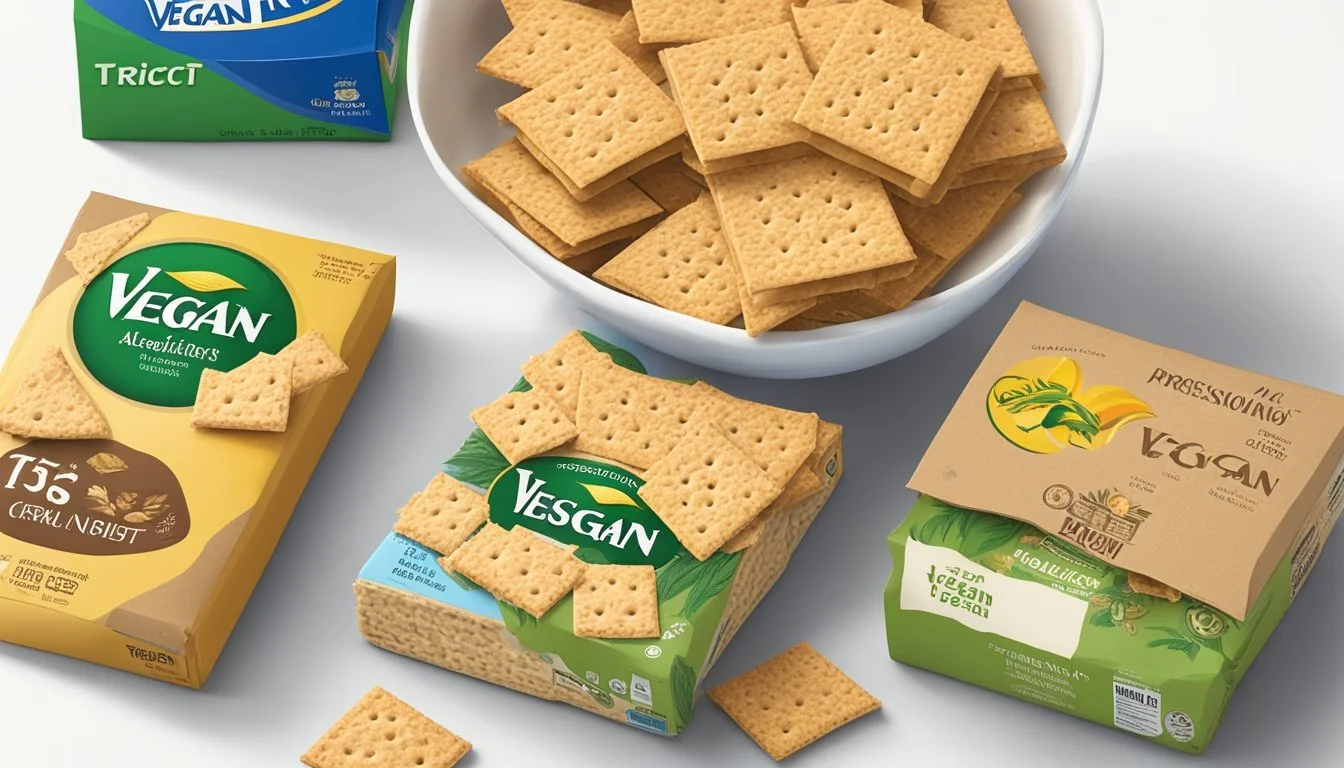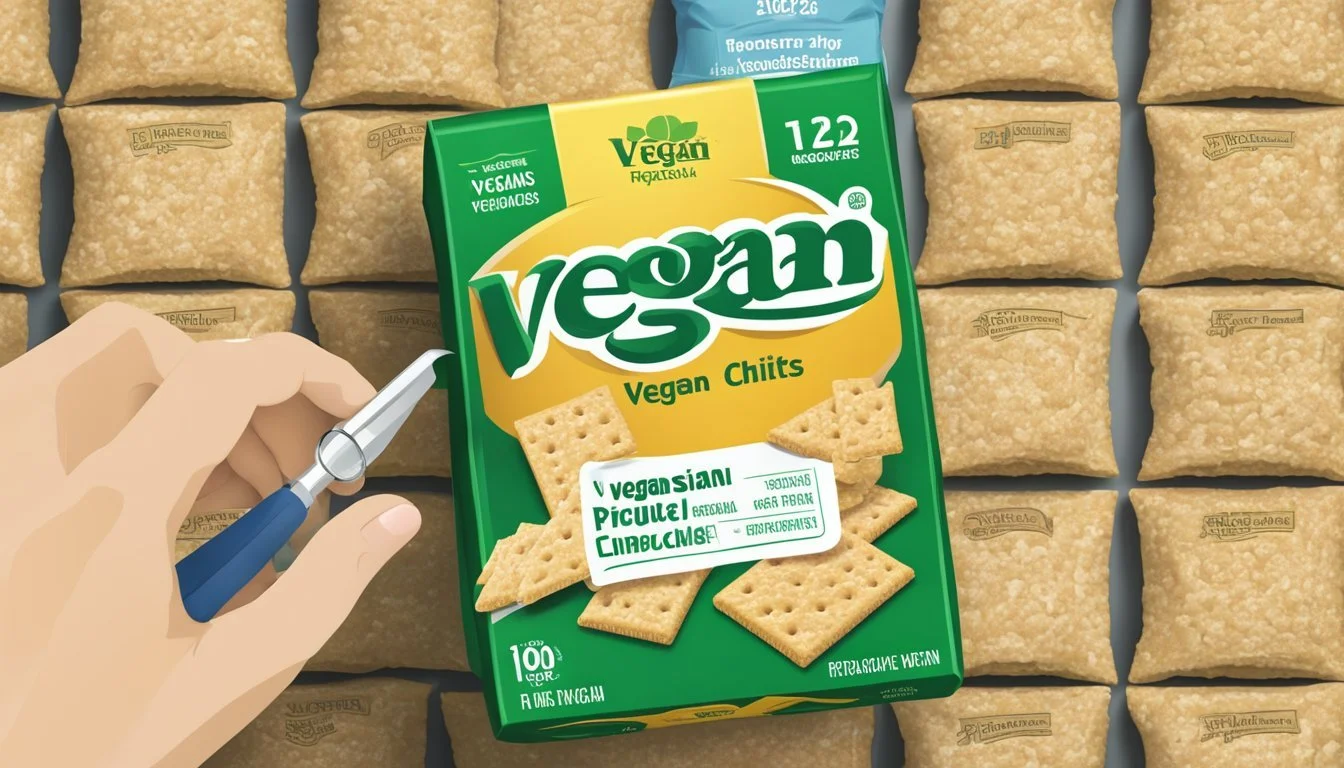Are Triscuits Vegan?
Unveiling the Snack's Dietary Profile
In navigating the world of plant-based eating, questions about the vegan status of various products frequently arise. Triscuits, a popular whole grain wheat cracker, are often a point of discussion among those following a vegan diet. A closer look at the original Triscuit crackers reveals that they are indeed vegan-friendly, consisting of three simple ingredients: whole grain wheat, plant oils, and sea salt, with an added preservative, BHT, to maintain freshness. This makes them a readily accessible option for those seeking vegan snacks.
However, not all Triscuit flavors conform to vegan standards. The brand offers a range of flavored crackers, and while some maintain a vegan profile, others incorporate animal-derived ingredients, especially cheese flavorings, that are not suitable for a vegan lifestyle. It is crucial for consumers to scrutinize the ingredient list of each flavor to ensure it aligns with vegan dietary restrictions. The nuanced approach to the Triscuit product line demonstrates the brand's effort to cater to a variety of tastes while also highlighting the importance of vigilance in maintaining a vegan diet.
What Are Triscuits?
Triscuits are a brand of baked whole grain wheat crackers that are known for their distinctive woven texture and hearty crunch. They have garnered attention for their simple ingredient list and versatility as a snack.
History and Brand Overview
The Triscuit brand was established in 1903, making it a longstanding presence in the snack food market. The crackers were initially advertised as being "baked by electricity," a novel concept at the time. Over the years, Triscuit has maintained a reputation for producing simple, wholesome snacks.
The Original Triscuit: Ingredients and Flavor
The Original Triscuit is crafted from three basic ingredients: whole grain wheat, plant oils, and sea salt. This flavor has remained a staple product in the Triscuit lineup, appealing to consumers seeking a vegan-friendly snack option. The appeal of the Original Triscuit flavor lies in its simplicity and the satisfying texture resulting from the unique baking process.
Understanding Veganism
In exploring veganism, it's essential to grasp its definition and distinction from a plant-based lifestyle. These concepts are rooted in choices impacting health, nutrition, and ethics.
Definition of Vegan
Veganism is a lifestyle choice that avoids all forms of animal exploitation and cruelty for food, clothing, or any other purpose. It's an ethical commitment that extends beyond diet to include the use of animal-free products in all aspects of life. Nutritionally, it entails consuming only plant-derived ingredients.
Plant-Based vs. Vegan
While both plant-based and vegan diets focus on plant-derived foods, they differ in scope and intent:
Plant-Based: Primarily diet-focused, this term refers to a food regimen that emphasizes whole, plant-derived foods while minimizing animal products. Health improvement is often the central motivation.
Vegan: Encompasses a broader ethical stance that rejects all animal products, not only in diet but across all lifestyle choices. Vegans also advocate for animal rights and environmental sustainability.
These definitions emphasize that veganism goes beyond nutrition, impacting one's comprehensive lifestyle choices.
Are Triscuits Vegan-Friendly?
Triscuit crackers offer a range of flavors, some of which are vegan-friendly, particularly the Original variety. They primarily consist of whole grain wheat, oil, and salt.
Analyzing Triscuit Ingredients
The foundation of Triscuit crackers is whole grain wheat, which is a vegan staple. The oil used in Triscuits is typically olive oil or canola oil, both of which are plant-derived and suitable for vegans. Another key ingredient is salt, which is also vegan. When examining the ingredients list, these simple components indicate that Triscuits, especially the Original flavor, are designed to accommodate a vegan diet.
Ingredients for Consideration:
Whole Grain Wheat: Vegan
Oil (Olive, Canola, Vegetable): Vegan
Salt: Vegan
Non-Vegan Ingredients to Watch Out For
Not all Triscuit flavors are vegan, as some may contain dairy or milk derivatives. Specifically, flavors with cheese or honey are not suitable for a vegan diet. Additionally, ingredients like sugar and natural flavor could be of concern due to potential processing methods involving animal products or their derivatives. Consumers should be vigilant and review ingredients lists for non-vegan items.
Potential Non-Vegan Ingredients:
Dairy/Milk: Common in cheese-flavored varieties
Honey: Used as a sweetener in some flavors
Sugar: May be processed with bone char
Natural Flavor: Ambiguous term that could indicate animal-derived ingredients
Nutritional Profile of Triscuits
Triscuit crackers offer a simple ingredient list that primarily includes whole grain wheat, providing a combination of macronutrients and fiber. They are designed to meet various dietary requirements with a focus on wholesome nutrition.
Macronutrients and Fiber
Calories: A serving size of six Triscuit Original crackers contains approximately 120 calories.
Fat: Each serving delivers 3.5 grams of fat, which includes healthier fats from plant oils such as canola or olive oil. Triscuits contain minimal saturated fat, supporting heart health.
Protein: Triscuits provide a modest amount of protein, contributing to the dietary protein intake necessary for body repair and growth.
Fiber: The use of whole grain wheat in Triscuits accounts for a substantial fiber content, benefiting digestive health and potentially aiding in the prevention of heart disease.
Potential Health Benefits
Heart Health: Due to their high fiber content and the use of whole grains, Triscuits may play a role in reducing the risk of heart disease.
Nutrition: The whole grains in Triscuits contribute essential nutrients that are part of a balanced diet. With minimal processing, Triscuits maintain the nutritional integrity of the grains.
Balanced Diet: The composition of Triscuits aligns with a health-conscious approach to snacking, fitting well within a balanced diet when consumed in moderation.
Flavor Varieties and Vegan Options
Triscuits offer a range of flavors, some of which are vegan-friendly, while others contain ingredients unsuitable for a vegan diet. It's important for consumers to distinguish between the two to make choices that align with their dietary preferences.
Vegan-Friendly Flavors
The following is a list of Triscuit flavors known to be suitable for vegans:
Original: Made with whole grain wheat, plant oils, sea salt, and BHT for freshness.
Rosemary & Olive Oil: These contain natural flavor but are free from animal derivatives.
Fire Roasted Tomato & Olive Oil: Vegan, made with plant-based oils and natural flavors.
Roasted Garlic: Typically vegan, although it's always good to check for variations in recipes.
One must always scrutinize the ingredients as formulations can change over time.
Flavors Containing Non-Vegan Ingredients
The Triscuit flavors listed below include non-vegan ingredients and should be avoided by those on a strict vegan diet:
Four Cheese: Contains dairy products derived from milk.
Romano Cheese: Another flavor where cheese, a dairy product, is a primary ingredient.
Four Cheese & Herb: Combines dairy cheeses with herbs, thereby making it non-vegan.
Honey & Romano Cheese: Honey, an animal by-product, and cheese are present in this variant.
It is essential for vegan consumers to read ingredient labels carefully as incidental additives not listed in the flavor name may also disqualify a product from being vegan.
Vegan Alternatives to Triscuits
For those seeking vegan alternatives to Triscuits, the market offers a variety of options that can satisfy cravings for a crunchy, healthy snack. These alternatives come in the form of both homemade recipes and store-bought brands, catering to different preferences and convenience needs.
Homemade Vegan Cracker Recipes
Those who prefer a hands-on approach to their snacks can opt to create their own homemade vegan crackers. This not only allows control over the ingredients but also the opportunity to customize flavors to taste. Here's a simple base recipe for homemade vegan crackers:
Start with 1 cup of whole wheat flour.
Add 1/4 cup of water and 3 tablespoons of vegetable oil.
Season with sea salt and any desired herbs or spices.
Mix the ingredients, roll out the dough thinly, cut it into desired shapes, and bake at 350°F for 10-15 minutes or until crispy. For a delicious twist, sprinkle nutritional yeast to emulate a cheesy flavor.
Store-Bought Vegan Cracker Brands
For those short on time or preferring the convenience of ready-to-eat snacks, several store-bought vegan cracker brands are available:
Mary's Gone Crackers: These crackers are known for their wholesome ingredients and come in a variety of flavors.
Craize's Toasted Corn Crackers: A crunchy alternative made from simple ingredients.
When selecting store-bought crackers, consumers should read the labels for ingredients to ensure they adhere to vegan standards. Looking for products that explicitly state they are vegan can also provide additional assurance.
Lifestyle Considerations for Vegans
Adopting a vegan lifestyle demands careful consideration of dietary choices to ensure nutritional needs are met. It's essential for vegans to balance their diet and be mindful when choosing snacks.
Balancing a Vegan Diet
A balanced diet is a cornerstone of good health, and for vegans, it involves carefully selecting foods that provide all the necessary nutrients. Plant-based diets can be rich in vitamins, minerals, and fiber, which are essential for reducing the risk of chronic diseases such as heart disease. However, a varied intake of fruits, vegetables, grains, legumes, nuts, and seeds is crucial to meet all nutritional requirements.
Vegans must ensure adequate protein intake, commonly sourced from animal products, by incorporating alternatives such as legumes, tofu, tempeh, and edamame. Attention should also be paid to vitamin B12, iron, calcium, vitamin D, and omega-3 fatty acids, as they can be less abundant in a vegan diet. Supplementing and choosing fortified foods may be necessary to avoid deficiencies.
Snacking for Vegans
When it comes to snacking, vegans have a wide array of foods to choose from. Healthy snacks can aid in maintaining energy levels and contribute to a balanced diet throughout the day. Nuts and seeds provide a burst of protein and healthy fats, while fruits and vegetables can satisfy a craving with their natural sugars and fiber content.
When considering packaged snacks like Triscuits, it's important to scrutinize ingredients, as some flavors may contain animal by-products like milk or cheese. Vegans should opt for the original flavor or others verified to be free of non-vegan additives. For a more indulgent snack, hummus is a flavorful and creamy dip that pairs well with the crunch of Triscuits or fresh vegetables.
Label Reading Tips for Vegans
When reading labels, vegans must scrutinize the ingredients list for hidden animal-derived components, some of which may not be immediately obvious from their names. Understanding which ingredients and labeling practices can mislead is crucial for maintaining a vegan diet.
Identifying Non-Vegan Ingredients
Animal-derived ingredients often hide behind scientific or less commonly known names. Here is a concise list that vegans should look out for:
Dairy Products: Often found in the form of casein, whey, or nonfat milk solids.
Egans: Look for terms like albumen or egg whites.
Animal Fats: Ingredients such as lard or tallow indicate animal fat.
Natural Flavors: Can be derived from animal sources, unless specified as vegan.
Flavor Enhancers: Some, like carmine, are insect-derived.
Table: Common Non-Vegan Ingredients
Ingredient Animal-Derived Source Aspic Meat or Fish Stocks Gelatin Collagen from Animals Lactic Acid Can be from dairy Shellac Female Scale Insect
Misleading Labeling Practices
Labels might not always make it clear if a product is vegan. For instance:
"Natural Flavors" could be of animal origin, yet the source is rarely specified.
Phrases like "artificial flavor" may include dairy or eggs as a base.
Some processing agents, such as bones in sugar refinement, are not listed on labels.
A certified organic label doesn't necessarily mean a product is vegan.
Vegans must do their due diligence and contact manufacturers when in doubt about specific ingredients or processing practices.


